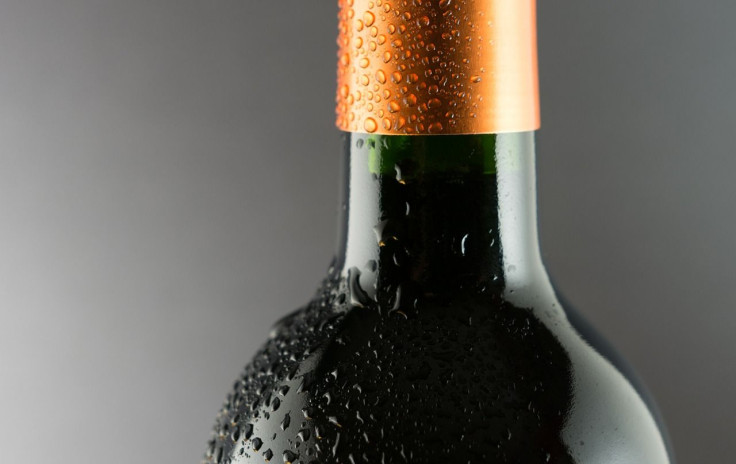Can Pregnant Women Have A Glass Of Wine With Dinner? Everything We've Learned About Drinking While Pregnant

Pregnancy can take a real toll on the body. As a woman’s hormones start to change, she may feel nausea, fatigue, dizziness, and mood swings, not to mention the anxiety and possible fear that can occur in the weeks leading up to actual childbirth. So how bad would it be to take the edge off with a little alcohol?
Maybe you think it’s crazy to ask that. The American College of Obstetricians and Gynecologists has long recommended against any alcohol consumption during pregnancy, calling it a leading cause of birth defects that can harm the fetus. Even moderate drinking can cause lifelong problems with a child’s learning and behavior.
But in recent years, the recommendation against all alcohol has come into question.
Is light to moderate drinking OK?
Some alcohol — think a glass of wine with dinner — can be perfectly healthy, according to some studies.
One published in BMJ Open in 2013 found typical drinking patterns in mothers, meaning not abstaining or binging, were associated with slightly better brain development in their babies. This echoes the results of a 2010 study that found children born to light drinkers actually performed better on cognitive tests than those whose mothers followed the no-booze rule. A separate study published in Alcohol and Alcoholism suggested that drinking a glass of wine a week during pregnancy leads to better mental health outcomes for kids by age 7.
Light drinking, according to a 2013 study published in Acta Obstetricia Et Gynecologica Scandinavica, limits negative emotions, such as depression and anxiety. The authors found 10 percent of women in Norway looked to alcohol to cope. The habit also seems to be more common in the UK, Ireland, and Australia.
Zero-tolerance policy
In 2015, the American Academy of Pediatrics (AAP) pushed back firmly against the idea that light drinking was OK for pregnant women. They published a clinical report promoting a zero-tolerance policy for drinking, stating alcohol-related birth defects were completely preventable if women abstained from alcohol use. These include fetal alcohol spectrum disorders, the most severe of which is fetal alcohol syndrome. It can hinder brain development; stunt height, weight, and head size; and alter facial shape and features.
When NPR wrote about the AAP report, the article’s comment section erupted in debate. One commenter said anything they saw on the topic conflated all drinking with moderate to heavy drinking. Another agreed that women should abstain, while a third suggested it's worthwhile to weigh the harm of drinking while pregnant against the psychological benefits of said consumption because, again, pregnancy can be a stressful and difficult time. There are also up to 10 percent of women who drank while pregnant and did not report any big problems in their children, per the Centers for Disease Control and Prevention (CDC).
Janet Williams, a professor of pediatrics at the University of Texas Health Science Center in San Antonio, told NPR it’s impossible to tell what level of drinking is considered safe. Not finding strong evidence for something, similar to how the BMJ found light drinking led to better brain development in babies, isn’t the same thing as giving women the go-ahead to open a bottle of Pinot.
It's for this reason that the CDC released its own guidelines this past February, Dr. Soha Elgharib, an OBGYN with Torrance Memorial Physician Network in Torrance, Calif., told Medical Daily. Both the CDC and AAP are trying to reinforced the no-drinking policy it recommends for women: “It doesn’t matter if it’s a beer or wine — no drinking whatsoever,” Elgharib said.
Alcohol-free relief
Since women who continue to drink once they get pregnant have said it helps soothe the stress and anxiety of pregnancy and planning for delivery, Elgharib recommends other equally effective coping mechanisms.
“For women who are planning to get pregnant, taking prenatal vitamins a couple months in advance helps with nausea,” she said. “If it was not planned, women can adjust their diet and avoid triggering foods.” Greasy meals, tomatoes and red sauces, carbonated beverages and, you guessed it, alcohol can increase feelings of nausea, according to Healthline.
For everything else, particularly any issues with mood, Elgharib said women should talk with their doctor. Generally speaking, after her patients attend parenting classes, their anxiety levels drop off, she said. But mood swings have to do with hormones, and every woman’s levels vary, she added.
So, if you’re expecting and were hoping for the all clear to pop open a beer, sorry — it’s far from clear that it's safe. If it’s any consolation, most of the negative symptoms pregnant women experience pass after the first trimester.



























